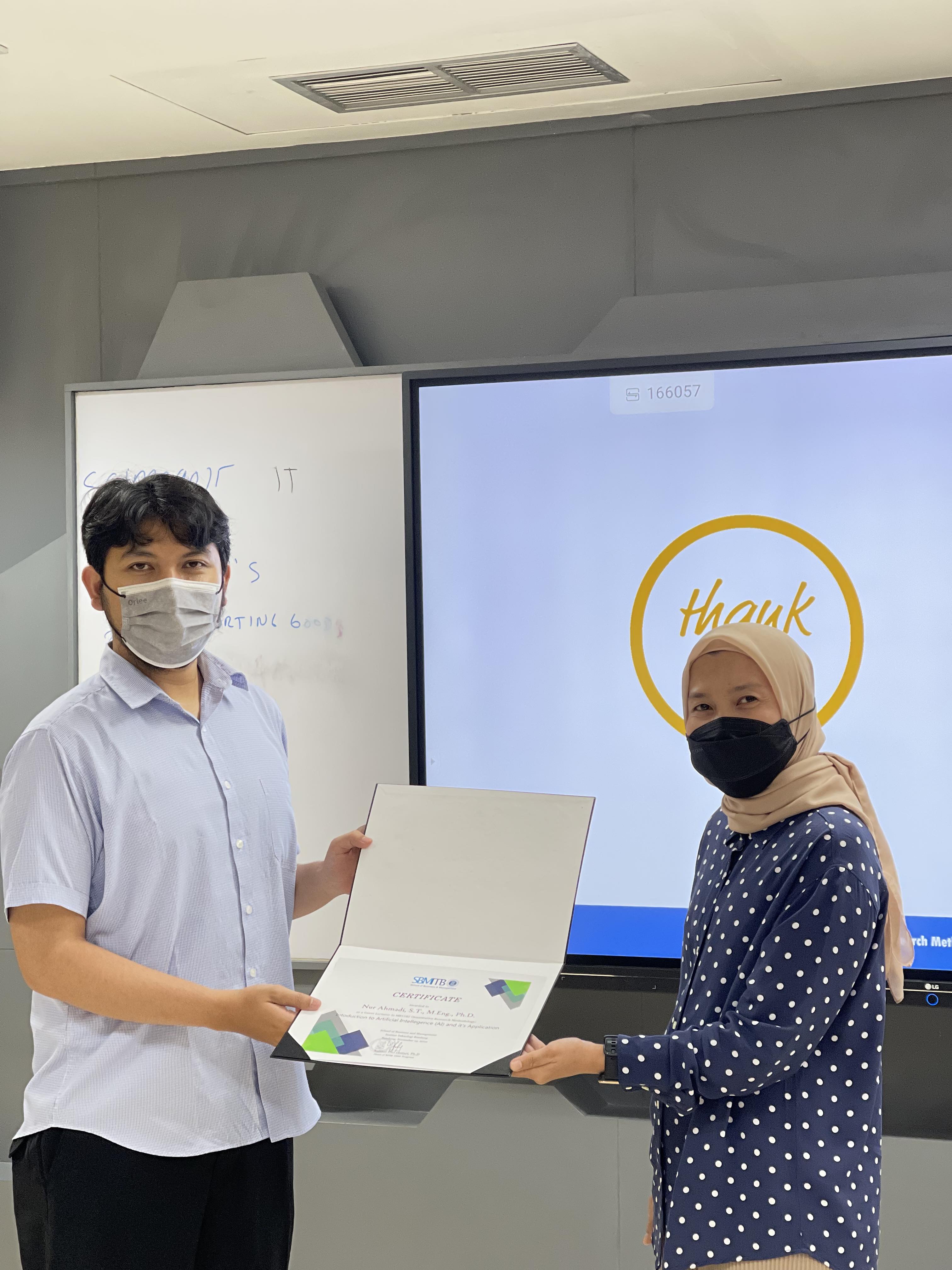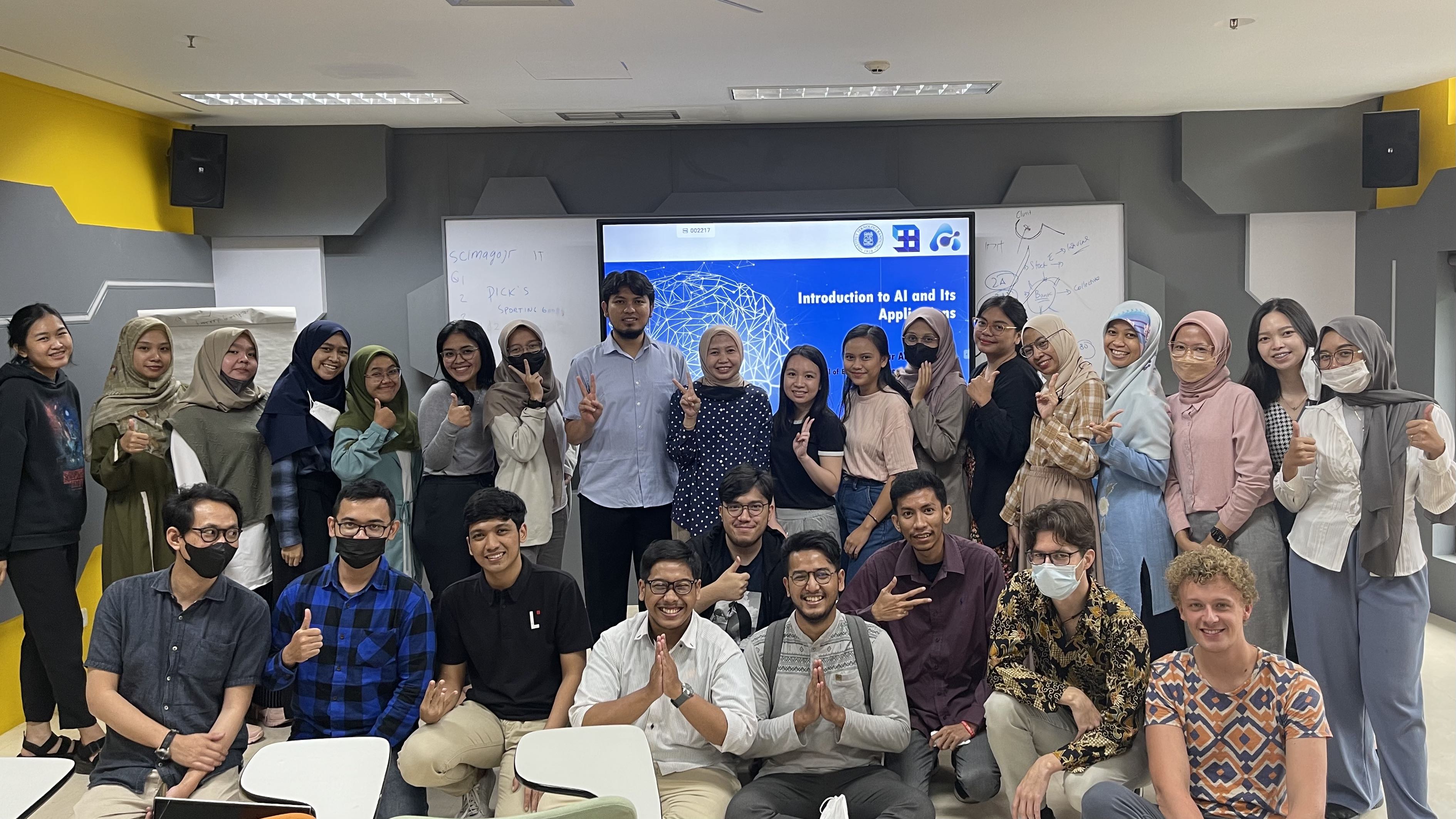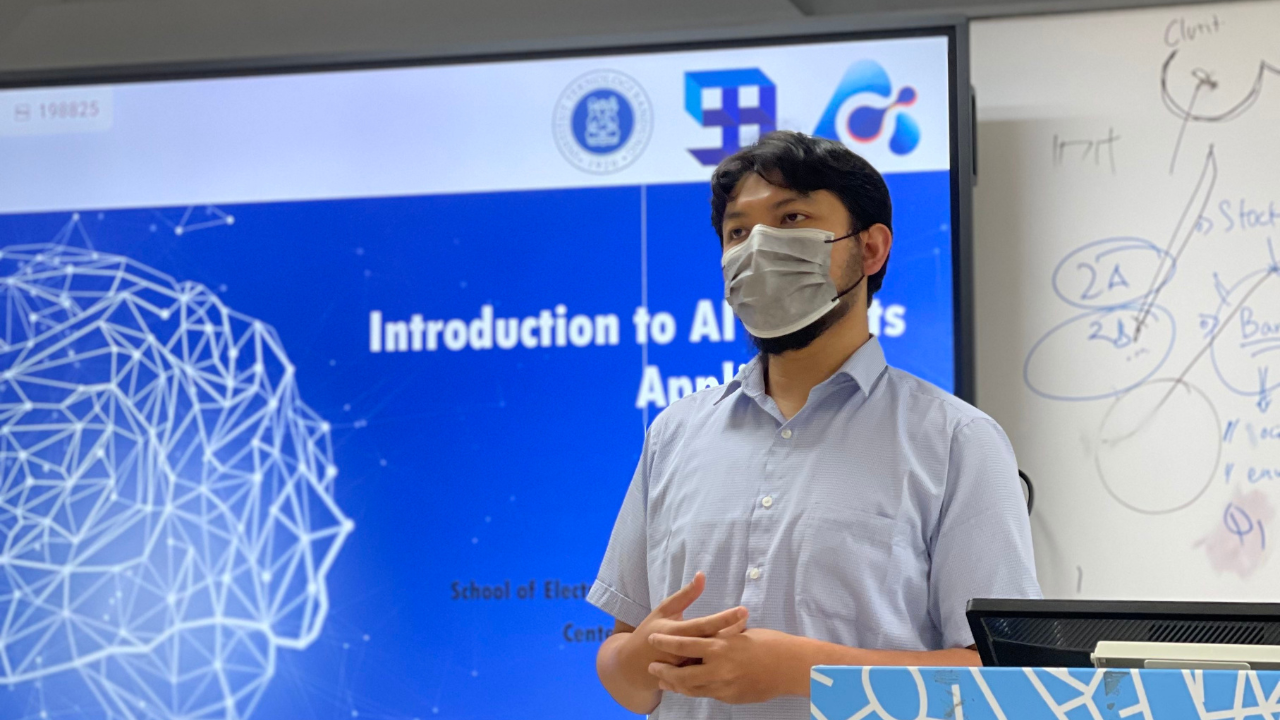Many of us unknowingly have coexisted with artificial intelligence (AI). Today’s AI technology has had affecting human life worldwide.
According to ITB AI Center Researcher, Nur Ahmadi, ST. M.Eng., Ph.D, AI technology has become a key driver of new technologies, such as big data, chatbots, self-driving cars, robotics, and the Internet of Things (IoT). In companies or organizations, the adoption of this technology is predicted to keep increasing because of the various benefits they can provide. For example, increasing customer satisfaction or reducing the risk of a bad investment.

Nur Ahmadi explained the progress of implementing AI in a guest lecture session for the Quantitative Class (Master of Science Management) on Monday, 11/14/2022. Ahmadi discussed Artificial Intelligence (AI) with examples of AI easily found around us.
Even on our smartphones, we are already familiar with the power of AI, but most of us are unaware of it. To clarify, Nur Ahmadi stated that personalized advertisement is part of AI. Every time we want to buy something and search for that product on Google or E-commerce, we open another application, and the advertisement for that particular product will appear and entice us to buy it.
Ahmadi also warned that AI is useful but can also be harmful. The good side of AI is that it defines more powerful and valuable computers, introduces new and better interfaces for human interaction, teaches new techniques to solve new problems, and improves work efficiency. Therefore, it reduces the duration of time to complete the task compared to humans.
On the other hand, the damaging risk of artificial intelligence introduces bias into decision-making algorithms. AI systems learn from the data set they are trained on, and depending on how this compilation occurs, there is the potential for the data set to reflect assumptions or bias. This bias can then affect the decision-making system.
In addition to high-quality algorithms, the strength of AI systems also lies in the availability of high-quality data sets. Companies involved in artificial intelligence are increasingly becoming greedy about people’s data. It’s never enough, and anything is justified to achieve better results. The risk, for example, is that the company creates increasingly clear user profiles, with increasing precision, and uses these resources for political purposes.
Written by Student Reporter (Defrina Dwifani, MSM 2022)





